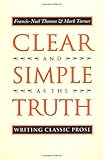The patronizing part wasn't the non-programmer part and making fun of programmers. I actually loved the line about VI/Emacs. It was the overly simplified sentences. Let me dig the pdf out:
You can print things out with print and you can do math. The next step is to learn about variables. In programming a variable is nothing more than a name for something so you can use the name rather than the something as you code. Programmers use these variable names to make their code read more like English, and because programmers have a lousy ability to remember things. If they didn’t use good names for things in their software they’d get lost when they came back and tried to read their code again.
For instance in this section your actual sentences are very simple. Over and over you use these simple sentences. And you use an explicit "you". It gives the feel of a children's book (I don't know if you have kids, but if not, google for some of the books or ask a co-worker to borrow some). I think explicit "you" is fine, but the constant reassurance compounded with the sentence structure and explicit "you" feels patronizing.
Other examples:
You might not know it, but every time you put " (double-quotes) around a piece of text you’ve been making a string.
Most of these concepts will be exciting once you get them. You’ll struggle with them, like wrestling a squid, then one day snap you’ll understand it.
I know several people professionally who'd benefit from the book if you upped the "implicit respect" of the style a few notches. However, I'd be afraid to give it to a few of them out of fear of insulting them with the way some people will interpret the tone. I'm putting this out there in all earnestness.
Here are a couple books on two different styles which might be more applicable for the work. They are on actual explicit styles of writing, although the second pretends all writing should look like that.
Clear and Simple as the Truth by Thomas & Turner (Classic style).
Nonafflink: http://www.amazon.com/Clear-Simple-As-Truth-Writing/dp/06910...
Example of classic style:
When I was a boy, there was but one permanent ambition among my comrades in our village footnote [1. Hannibal, Missouri] on the west bank of the Mississippi River. That was, to be a steamboatman. We had transient ambitions of other sorts, but they were only transient. When a circus came and went, it left us all burning to become clowns; .... now and then we had a hope that if we lived and were good, God would permit us to be pirates. These ambitions faded out, each in its turn; but the ambition to be a steamboatman always remained. --Mark Twain
Style by Williams (Plain Style):
Nonafflink: http://www.amazon.com/Style-Clarity-Chicago-Writing-Publishi...
Example: After Peter the Great died, seven out of eight reigns of the Romanov line were plagued by turmoil over disputed succession to the throne. -- Williams edit to uncredited work on Russia


And "Style: Towards Clarity and Grace" for a more humble, direct, simple style for non-complex presentation: (Non-aff) http://www.amazon.com/Style-Clarity-Chicago-Writing-Publishi...